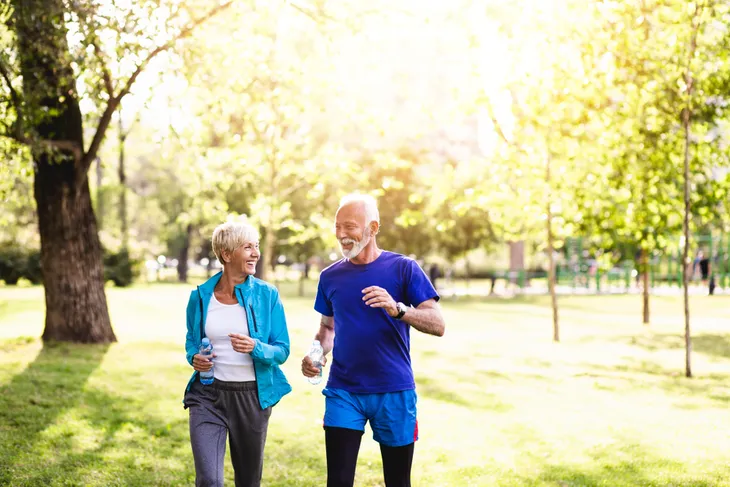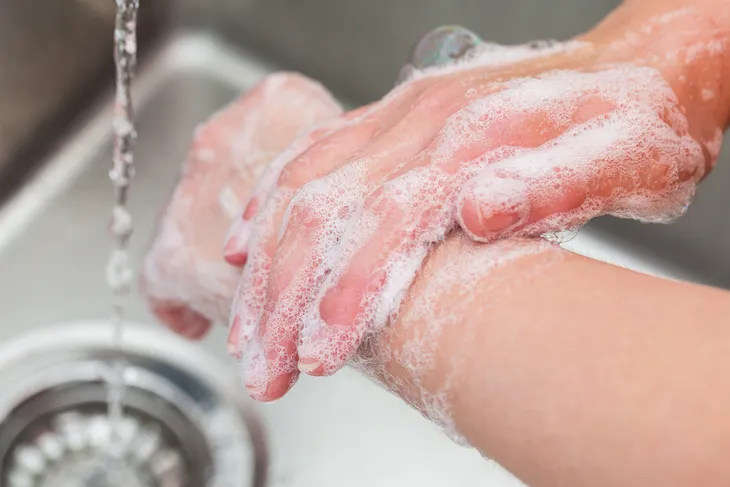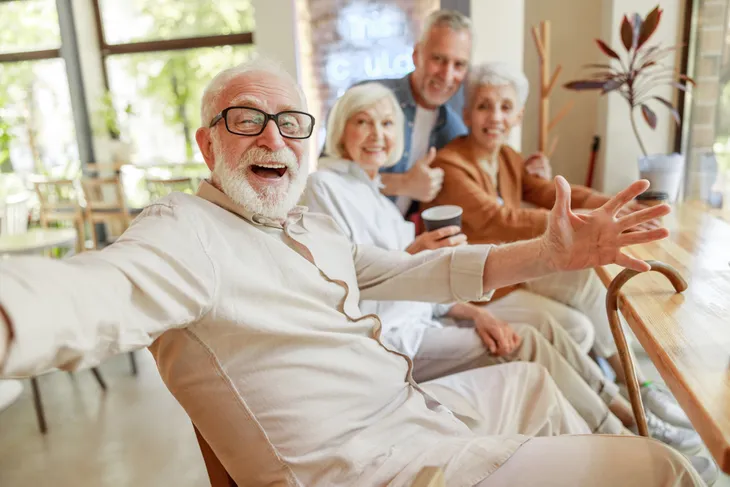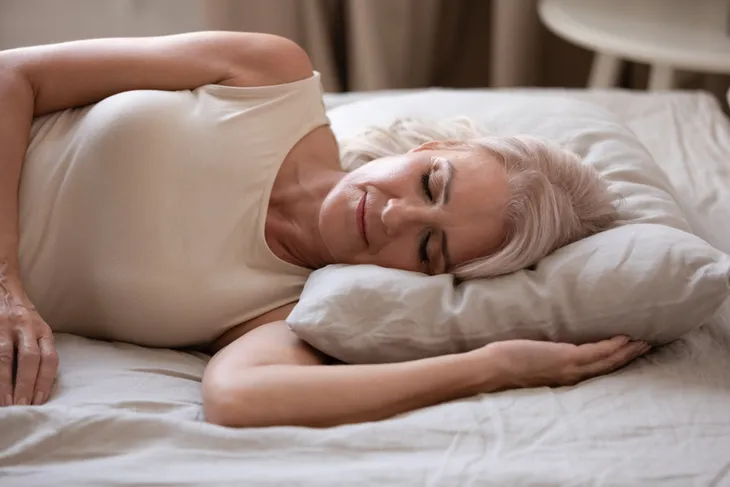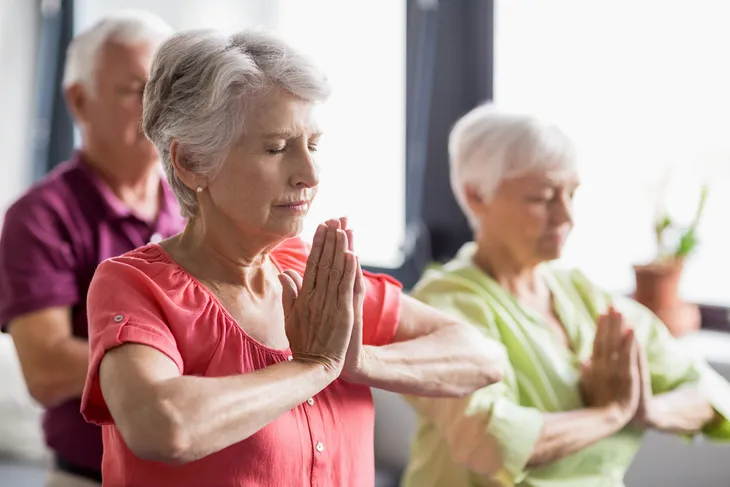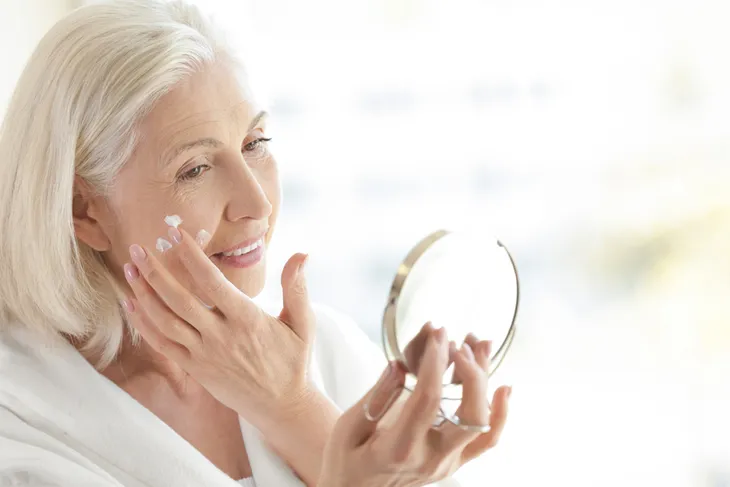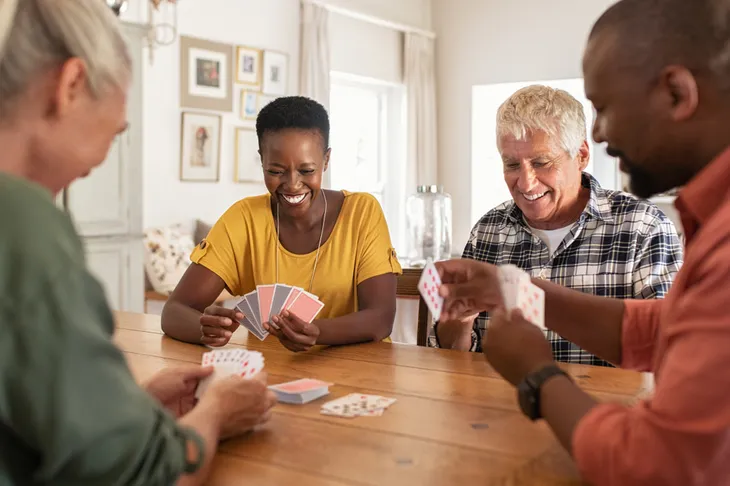It’s important to take care of your health at any age but seniors can be more susceptible to illnesses making it even more of a priority. What better time to start taking care of your health than at the start of a new year. Setting healthy New Year’s resolutions can be a good thing, you just have to make sure they’re realistic and achievable. So this year, let’s dedicate the new year to taking charge of your health both mentally and physically.
Taking care of your health includes a variety of best practices from staying active to eating well but it also means taking care of your skin and your mental health too. If you’re ready for a new year and a new you, then let’s explore the health tips all seniors should know!
Want senior content delivered straight to your inbox? Sign up for our exclusive email list and receive articles and news on diet & nutrition, fitness, and mental health dedicated specifically to our senior audience!
Get Active
You’ve probably heard “exercise more” all your life, but do you know how important it actually is? The Centers for Disease Control and Prevention (CDC) states, “As an older adult, regular physical activity is one of the most important things you can do for your health.”
Exercise can help prevent health problems that come with age, ward off chronic diseases, help prevent falls, and help you maintain your independence. Unfortunately by age 75, one in three men and one in two women engage in no physical activity. The good news is, it’s never too late to start!
If you’re ready to take charge of your physical health this year, then try to get about 150-minutes of exercise per week. This can be broken up into 30-minute exercises five days a week. Get started with these easy exercises for seniors.
Wash Your Hands Often
If this year has taught us anything, it’s the importance of practicing good hand washing. Washing your hands frequently during cold and flu season is important but it’s a good thing to practice all-year-round too. Some viruses can live on surfaces making it possible for you to become ill if you touch the infected surface and then touch your face.
Some key tips for washing hands effectively include lathering your hands with soap and water for at least 20-seconds followed by rinsing and drying well. Also, try your best to not touch your face, especially in public areas.
Finally, bring a bottle of hand sanitizer with you to use when you’re unable to wash your hands. You may also enjoy this DIY (do it yourself) project that shows you how to make homemade hand sanitizer.
Stay Connected
Staying socially connected as we get older is important for our physical and mental health. Healthline states, “…research has linked social isolation and loneliness to higher risks of high blood pressure, heart disease, obesity, depression, cognitive decline, Alzheimer’s disease, and more” And interacting with others can help ward off these risks.
This year make it a goal to stay connected with friends and family. You may even need to put time on the calendar and schedule regular visits or phone calls to catch up. Other ways to stay socially connected and to meet new people is to volunteer or join community groups and activities.
Eat Better
You’ve surely heard it time and time again, “eat better”. But eating a healthy diet is really important. Of course, you can enjoy your guilty pleasures in moderation but a diet that is rich in fruits and vegetables, and lean meats can do a lot of good for your body!
Eating a healthy diet can help maintain a healthy weight, boost your immune system, and help ward off harmful diseases. Check out these everyday foods all seniors should be eating! Keep in mind some foods can conflict with certain types of medications so always speak with a medical professional before making any drastic dietary changes.
Consider Supplements
Some people can benefit from taking supplements especially if they’re not getting enough from their diet. There are plenty of essential vitamins for healthy aging from vitamin C and D to vitamin B12, magnesium, potassium, and more.
That said, not everyone needs to take supplements. Make sure you speak to your doctor to find out if you’re deficient in any essential vitamins and minerals and to find out if supplements are a good option for you!
Get Better Sleep
Do you get enough sleep? Or how is the quality of your sleep? Getting a good night’s rest has plenty of health benefits from reducing your stress levels, boosting your immune system, and so much more. In fact, research shows that lack of sleep can increase your risk of heart disease and infections.
With this in mind, dedicate this year to get better sleep. Older adults require about seven to nine hours of sleep per night. If you’re having trouble sleeping check out these sleeping tips for seniors. You may also need to speak with your doctor to find out if there is an underlying cause for your lack of sleep.
Manage Stress
It’s normal to feel stressed from time to time but chronic stress can wreak havoc on your health! According to Harvard Health, chronic stress can lead to high blood pressure, a weakened immune system, insomnia, anxiety, depression, and can even increase your risk for heart disease.
The good news is there are techniques you can try to help manage stress. For example, you may find yoga, tai chi, or other forms of physical exercise beneficial. You can also try meditation and breathing exercises. Finally, make sure you talk to a loved one about your concerns and you may want to speak with a medical professional to determine if stress is taking a toll on your physical health.
Schedule Annual Medical Checkups
Another very important health tip for seniors is to never skip your medical checkups! Certain conditions such as high blood pressure and diabetes can go undetected. This is why speaking with your doctor regularly is vital for diagnosing health problems early.
This year make it a goal to schedule your annual checkups. This goes for both medical and dental because oral health is important too!
Develop a Skincare Routine
Do you have a skincare routine? If not, this is the year to start! The skin is our largest organ and as we age it loses its elasticity and becomes thinner and more fragile. This is why taking care of it is important.
If you’re ready to start taking care of your skin, then make sure you stay hydrated, take fewer baths using a milder soap, try using a humidifier to add moisture to the room, apply sunscreen to protect you from skin cancer, and apply moisturizers every day. If you’re not sure where to start, check out these anti-aging moisturizers for seniors.
Stimulate Your Mind
Exercising your mind is just as important as exercising your body. It helps prevent cognitive decline, memory problems, and helps you maintain a healthy brain!
There are many ways you can boost your brain health. For starters, physical exercise, eating a healthy diet and staying socially active both benefit your brain. Other brain-boosting activities include reading, writing, learning new skills, enjoying hobbies, and playing games.

